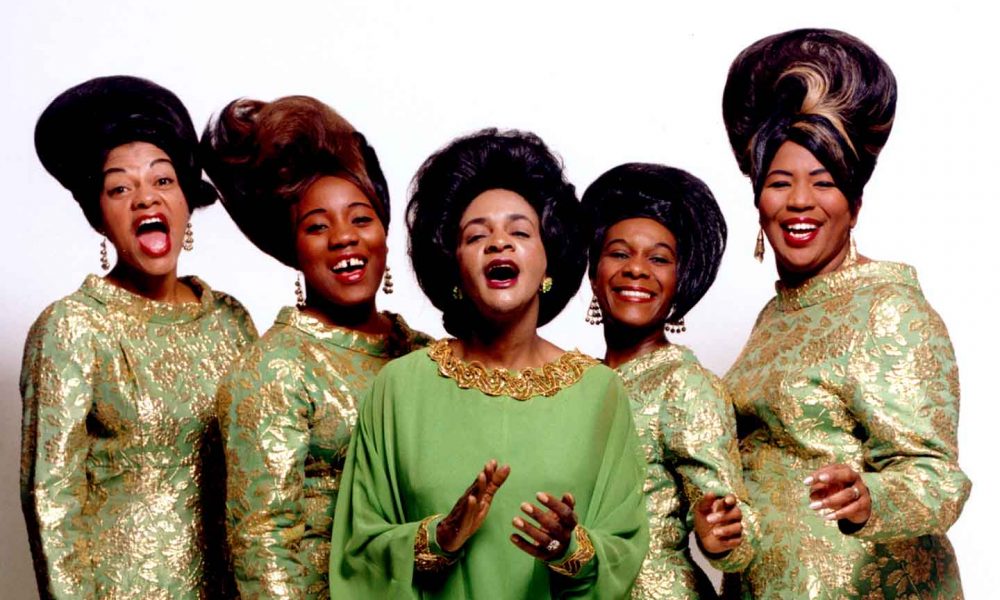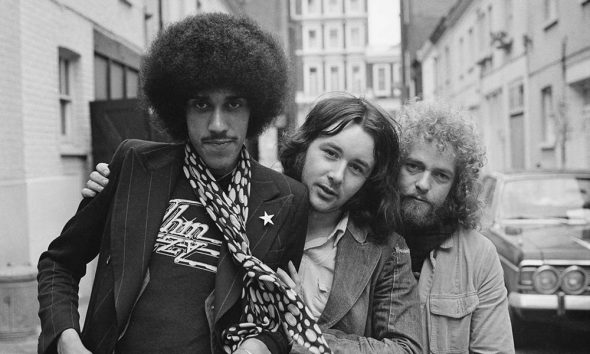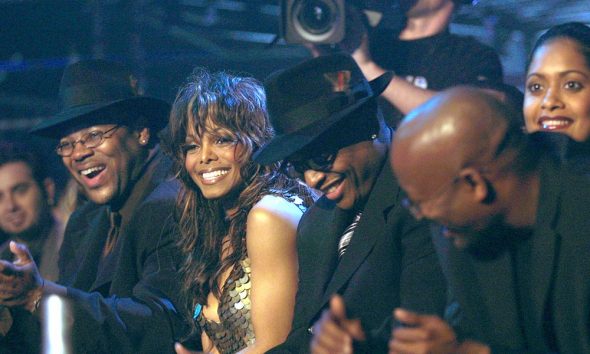Nashboro Records: Highlights From The Nashville Gospel Imprint
A celebration of the label that was once one of the most prolific creators and sellers of gospel music.

Nashville, globally recognized as Music City, is primarily hailed as the capital of country music. Its central role in the development of gospel music is a less-known fact. But when record store owner Ernie Young founded Nashboro Records in 1951, he began a label that would become one of the most prolific creators and sellers of the genre, capturing the wide range of sounds that gospel encompassed.
The enterprising Young built a studio above his record shop, and later broadcast gospel programs on multiple radio stations from the front of his record shop, which gave him the ability to both record in-house and promote the artists he was recording. He recorded well-known groups from around the country when they passed through Nashville, like the Angelic Gospel Singers, Brother Joe May, and Edna Gallmon Cooke, regional favorites like Morgan Babb’s Radio Four and the Fairfield Four, and got in on the ground floor of the careers of artists like Candi Staton, then just eleven years old singing with the Jewel Gospel Trio, and Jackie Shane, then a teenaged drummer for various Nashboro sessions. The Best of Nashboro Gospel encapsulates some of the greatest moments from this period, now recognized as “the golden era of gospel.”
Listen to the best of Nashboro Records now.
When Young sold the label to Crescent in 1967, Shannon Williams was promoted from Young’s record shop to vice president of production. Williams produced over 200 singles and albums for the label until he left the label in the early 80s, generating hits for gospel icons like Dorothy Love Coates, Alex Bradford, and Sister Lucille Pope. He also conceived the label’s subsidiary, Creed Records, which played a major part in the development of contemporary gospel, signing The New York Community Choir, Benny Cummings & the King’s Temple Choir, Milton Brunson & The Thompson Community Singers, and Harrison Johnson’s Los Angeles Community Choir, all of whom were visionaries of the burgeoning new choir sound, converging gospel with soul, funk, disco, and pop.
At a time when many labels abandoned traditional gospel, Nashboro was insistent on representing the full spectrum of the gospel sound. As Williams told Billboard, “The record sales support our idea that there’s definitely a market for this type of traditional music.” “They were it!,” the late Don Butler, co-founder of the Gospel Music Association, once explained to The Tennessean. “At one time, they had that whole area of the business sewn up.” While the label shut down in the early 80s, their catalog continues to capture new listeners. These are three projects that capture the magic of the distinctive Nashboro sound.
Clara Ward – The Very Greatest
When Clara Ward came to Nashboro in the summer of 1971, she hadn’t had a gospel hit in quite some time. Her mainstreaming of gospel by way of television appearances and nightclub performances alienated the gospel audience that catapulted her to stardom. She’d spent most of the 60s recording inspirational pop songs like The Beatles’ “Help” and “Aquarius/Let The Sunshine In” from the counterculture musical Hair, which further scandalized her more pious listeners. Shannon Williams’ production returned Ward to her gospel core.
Gospel music historian Anthony Heilbut praised Clara’s Nashboro recordings as “pure, hard gospel,” and Clara as an artist who “still has no superiors.” Balancing contemporary tunes written specifically for her by Charles May (a writer for Quincy Jones and James Cleveland) with uptempo, tambourine beaters like “When We All Get To Heaven” and “We’ll Soon Be Done with Troubles and Trials,” and the hymns she loved most like “Beams of Heaven” and “The Last Mile of the Way,” The Very Greatest showcases the talent and spirit that made Aretha Franklin her student as a youngster. “The Last Mile of the Way” earned Ward her last Grammy nomination weeks after her January 1973 death.
John Whittaker & The Twenty-First Century Singers – Triumphant
Johnny Whittaker first came to Nashboro as part of the BC&M Choir, an interdenominational choir that he co-directed, which scored the label major hits including “I Made a Vow” (led by Regina McCrary of the McCrary Sisters) and “Live So God Can Use Me.” He stepped out and formed the Twenty-First Century Singers, initially a large ensemble that he reduced to a trio, composed of himself, Charles Miller, and Lula Jordan. Whittaker’s dazzling soprano, Miller’s Baptist growl, and Jordan’s sterling alto became synonymous with the Nashboro sound – not only because of their albums, but their contributions to the albums of other artists on the label like Isaac Douglas, Morgan Babb, and Rev. Ruben Willingham. Williams wrote of Whittaker, “I personally know of no other male sopranos in the gospel business – with the exception of Roger Roberts with the James Cleveland Singers – who would hit F’s above high C the way John Whittaker could.”
The Triumphant compilation includes the entirety of this Grammy-nominated group’s 1982 masterpiece of the same title which features Whittaker and Jordan with two new group members, Robin Johnson and Shirley Settles. Twenty-First Century Singers provide a masterclass in the wide terrain of gospel sounds that Nashboro championed. Whittaker reaches for the stars on octave-leaping hymns “The Solid Rock,” “What a Friend We Have In Jesus,” and “Blessed Assurance,” making these studio recordings feel like a live church service. “One of These Days” and “I Want To Be Ready” are unabashed gospel-disco-funk, while “I’m Gonna Love You” and “There’s a Better Day Coming” flirt with R&B almost a decade before BeBe & CeCe Winans hit #1 on the R&B charts.
Willie Neal Johnson & The Gospel Keynotes – Feel The Fire
The Gospel Keynotes came to Nashboro in 1964 from Tyler, Texas, inspired by groups like the Swan Silvertones and the Five Blind Boys of Alabama and Mississippi. Over the course of their nearly twenty-year affiliation with Nashboro, they stretched the boundaries of what quartets could do and where they could go. Shannon Williams told gospel music historian Don Cusic, “They’ve done some of the Black college campuses and things of that nature and have been accepted very well. Even though they’re a quartet, they’re not the ordinary quartet. They’re a little more progressive, a little more contemporary.”
Feel the Fire showcases the group’s signature spontaneity in the studio and on stage with burners like “Same Old River” and “I Feel The Fire Burning,” while also going against the grain of convention by venturing into disco with their Grammy-nominated cover of McFadden and Whitehead’s “Ain’t No Stopping Us Now,” and interpreting choir hits of the time like James Cleveland’s “God Has Smiled On Me,” Walter Hawkins’ “Be Grateful,” and Harrison Johnson’s “I Decided To Make Jesus My Choice.”













Theresa comer
June 27, 2023 at 1:25 am
This is awesome!!! Spent a lot of time eat Woodland Studios in the late 70’s!